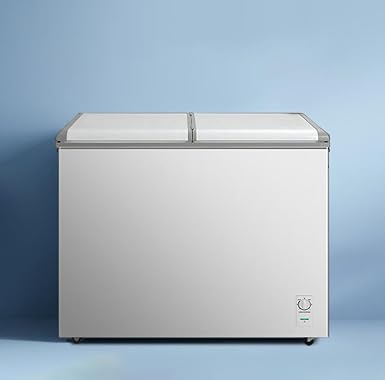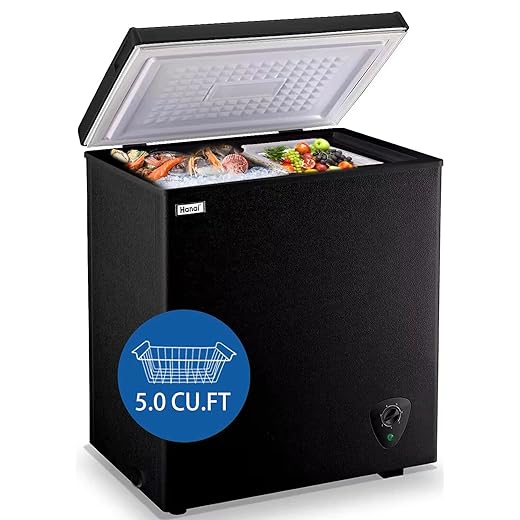







The Ultimate Guide to Freezers: Choosing, Using, and Maintaining Your Freezer
In an age where convenience is king, having a reliable freezer can significantly enhance your culinary experience. But with a plethora of options available, how do you choose the right one? And once you have it, how do you make the most of it? Let’s dive deep into the world of freezers and discover how to maximize their potential.
Understanding the Types of Freezers
When it comes to freezers, there are several types to consider. Each has its unique features and benefits, making them suitable for different needs.
1. Chest Freezers
Chest freezers are spacious, offering ample storage for bulk purchases. Imagine opening a treasure chest filled with frozen goods! Their design allows for better temperature retention, making them energy efficient. However, bending down to access items can be a workout.
2. Upright Freezers
If you have limited floor space, an upright freezer could be your best friend. With shelves and bins for organization, it’s easier to find what you need. Think of it as a well-organized closet for your frozen foods! However, they tend to use more energy compared to chest freezers.
3. Built-in and Drawer Freezers
For those who prefer a seamless kitchen aesthetic, built-in and drawer freezers are perfect. They blend into cabinetry, offering a sleek look without sacrificing functionality. However, they often come with a higher price tag.
Choosing the Right Freezer for You
Now that you’re familiar with the types, how do you decide which is best for you? Here are some factors to consider:
– **Space**: Measure the area where you plan to place your freezer. Ensure there’s enough room for airflow around it.
– **Capacity**: Think about your freezing needs. A larger family may require a chest freezer, while a couple might find an upright model sufficient.
– **Energy Efficiency**: Look for models with Energy Star ratings to save on electricity bills. After all, a freezer should save you money, not cost you more!
– **Budget**: Freezers can range from a couple of hundred to several thousand dollars. Set a budget and stick to it while keeping quality in mind.
Maximizing Your Freezer’s Potential
Once you’ve chosen your freezer, it’s time to put it to good use. Here are some tips to maximize its efficiency and usability:
1. Organize with Purpose
Think of your freezer as a filing cabinet. Use bins or baskets to categorize items—meats, vegetables, and ready-to-eat meals should each have their own space. Labeling bins can also save you time searching for that elusive frozen broccoli!
2. Pre-freeze Foods Properly
Before freezing, it’s essential to prepare foods correctly. For fruits and vegetables, blanching can help preserve flavor and color. For meats, proper wrapping prevents freezer burn—like putting on a warm coat before stepping outside on a chilly day.
3. Know What to Freeze
Not all foods freeze well. Dairy products, for instance, can change in texture. Think of freezing as a pause button for food—certain items can handle the freeze, while others might lose their charm.
4. Regular Maintenance is Key
Just like a car needs regular oil changes, your freezer requires maintenance too. Clean it out periodically to remove expired items and prevent odors. Defrosting your freezer every few months can also improve efficiency—like clearing out cobwebs from a forgotten corner.
Common Freezer Mistakes to Avoid
Understanding what not to do is just as important as knowing best practices. Here are a few common pitfalls:
– **Overloading**: Stuffing your freezer to the brim can restrict airflow. Just like a traffic jam, it can lead to inefficiencies and uneven cooling.
– **Frequent Opening**: Constantly opening the freezer can lead to temperature fluctuations. Try to plan ahead to minimize trips.
– **Ignoring Temperature Settings**: The ideal freezer temperature is 0°F (-18°C). Keeping it colder than necessary wastes energy, while a warmer setting can compromise food quality.
Conclusion
A freezer can be a game changer in your kitchen, allowing you to store food for later use and reducing waste. By understanding the different types, selecting the right one for your needs, and implementing smart organizational strategies, you can unlock the full potential of this essential appliance. Remember, a well-maintained freezer not only saves you time but can also save you money, making it a sound investment for any home.
FAQs
1. How long can food be stored in a freezer?
Most food can be safely stored in a freezer for several months. However, the texture and flavor may diminish over time. For best results, follow guidelines specific to each food type.
2. Can I freeze leftovers?
Yes! Freezing leftovers is a great way to minimize waste. Just ensure they’re cooled down before placing them in the freezer, and use airtight containers to prevent freezer burn.
3. How often should I defrost my freezer?
It’s advisable to defrost your freezer every three to six months, or whenever ice buildup exceeds a quarter-inch. Keeping it frost-free improves efficiency and saves energy.
